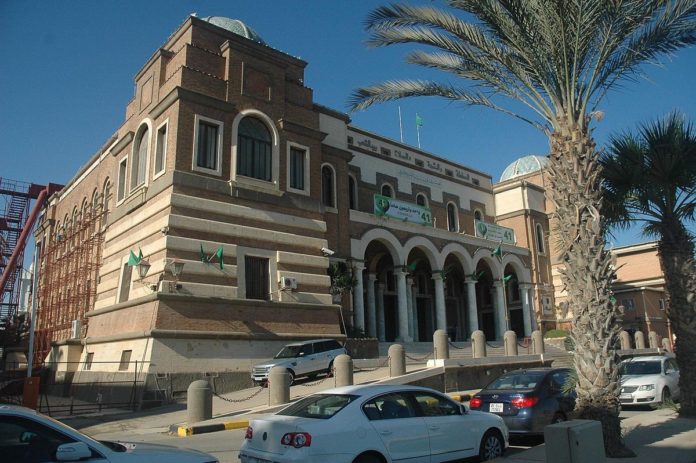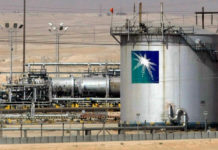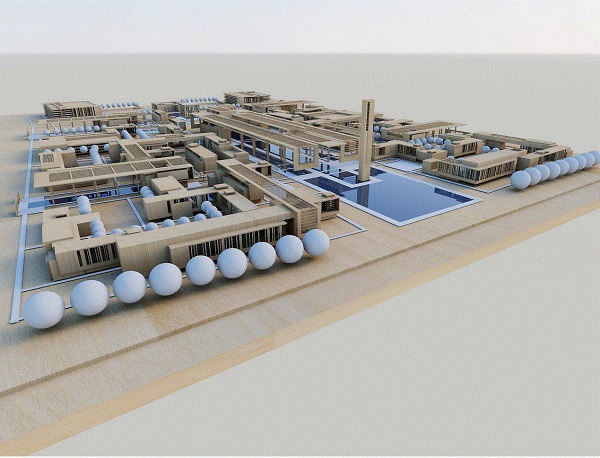Dr. Ali Shanibish, former Director of the Research and Statistics Department of the Central Bank of Libya shares his perspective regarding challenges and solutions to the Libyan economy. All the information and statistics presented are based on objectivity, accuracy, impartiality and basic sources.
Causes of the crisis
1- The closure of ports and oilfields, the country’s main income in late July 2013 under the pretext of the lack of meters, lead to the country’s loss of about 80% of its foreign currency earnings.
2- The decline in world oil prices by 65% in the beginning of the first quarter of 2015, dropping from $100 per barrel to $35 per barrel, also affected the income and foreign currency earnings.
3- Political division in both legislative (Parliament) and executive branches (two and three governments), each of which has individual expenses for offices, ministers, employees, headquarters, etc.
4- Division of the most important financial institutions: Central Bank; Oil Corporation, Audit Bureau; Libyan Investment Corporation and other strategic bodies.
5- The deteriorating security situation, which contributed to a lot of administrative and financial corruption and a state of panic and instability.
The repercussions and negative impacts of the crisis
1- The major drop in the country’s foreign currency earnings led to a budget deficit, local public debt grew to 56 billion dinars. The deficit in the balance of payments reached about 40 billion dinars. The budget deficit was due to higher salaries, public expenditure, subsidies, etc. While the trade deficit was due to the increase in imports, including gasoline and diesel and transfers for various purpose.
2- The Central Bank gradually imposed restrictions on foreign exchange utilization as of 2015, in an attempt to stop the deterioration of its reserves of foreign currency. The Central bank reduced the issuance of letters of credit and documents with the collection fee and reduced the value of foreign remittances for various purposes, from $15,000 to $450. Accordingly, the growing demand for foreign currency created a parallel black market that led to the devaluation of the dinar from less than two dinars per dollar in 2014 to nine dinars per dollar.
3- One of the most prominent effects of these repercussions was the increased inflation, accelerating to cope with the rise in the value of the dollar and the deterioration of the value of the dinar, so prices increased to an unprecedented level in Libya, leading to an increase in the rate of poverty and the spread of kidnapping, murder and extortion.
4- Failure to collect taxes from all land and sea ports and keeping the taxes in the municipalities where these ports are located.
5- Liquidity crises arose due to the effects of all the previous reasons, accordingly, traders and individuals ceased to deposit in banks because of their lack of confidence. Banks were in a state of high congestion with people queuing to get a small amount of cash, not even enough for a week’s expense.
(*) These are the causes of the crisis and its consequences as a necessary introduction to define solutions based on reality
(1) Proposed measures to amend the Libyan dinar exchange rate
1- To expedite the unification of the Board of Directors of the Central Bank of Libya and enable it to hold an urgent meeting to discuss the adjustment of the dinar’s exchange rate taking into account the current economic situation, as well as, the situation of low-income citizens.
2- The new price should be available to all individuals and institutions within society without discrimination.
3- All restrictions on foreign exchange should be cancelled on all imports and transfers and should not be subject to administrative approvals.
4- The exchange rate adjustment should coincide with the issuance of executive decisions for a package of accompanying policies, in particular the progressive reduction of fuel subsidies and compensating it with direct monetary support, which would lead to an equitable income distribution and the elimination of smuggling.
5- Issuing a negative list from the Ministry of Economy to a limited number of prohibited goods for religious and moral considerations that are not accepted by society.
6- Reducing government transfers abroad, especially transfers to embassies, through reducing the number of employees, as well as, cancelling the discriminatory financial treatment in calculating the dinar to $4 for their salaries, this treatment is unacceptable, both economically and socially. A new list of CVs and Salaries should be prepared, taking into account the real requirements of each and every job in every country.
7- Reorganising and setting up controls for scholarships abroad, as well as the elimination of discriminatory financial treatment, in the calculation of the value of the grants in dollars verses dinars as mentioned above, and that the new financial regulation that takes into account the real financial requirements of students.
(2) Proposed measures for inflation treatment
1- The adoption of a package of measures that would curb inflation and its negative effects on citizens’ income and purchasing power, which will happen automatically and quickly once the exchange rate is adjusted and fuel subsidies are reduced.
2- Cancelling the remaining part of the forced pricing policy and to activate and support efforts to protect the consumer, in terms of the quality and validity of commodities traded in the market. Also, not to allow the entry of goods that could be harmful to health.
3- There should be a normal flow and regularity of the imported goods and a severe punishment for attempts to deliberately hide goods in speculation for price increases.
4- Transparency of economic policies and clarity of vision should be periodically and regularly announced through data dissemination and statistics, holding seminars and interviews in the media to reassure the citizens and to inform them about the economy’s progress.
5- Lifting restrictions in issuing letters of credit guarantees and transfers while reducing bank commissions on them to the extent that does not harm their financial conditions under normal circumstances.
6- Reviewing customs duties and alleviating them on basic commodities such as foodstuffs and medicine and increasing them on luxury and non-essential goods and commodities most of which are traded in the Libyan Market
(3) Regarding banks liquidity
1- All banks need to expand in issuing prepaid electronic cards and the Central Bank should monitor and follow the extent of banks’ commitment to achieve this and the imposition of financial and administrative penalties on banks that are negligent in this and the publication of lists of the banks in default.
2- Fighting and boycotting merchants who exploit citizens by increasing the prices of the goods they sell for cards and banknotes and publishing lists of names of their stores and addresses so that citizens will not go to them
3- Urging all public and private legal entities to accept bank cards in paying the fees and services provided by these entities to citizens.
4- The entities that deal in cash with the citizen, such as Amdar and Libiana and some airlines, deposit the cash they receive in the commercial banks.
5- To maintain the confidentiality of citizens’ accounts and not to identify them except for their owners or to those permitted by law.
(4) Regarding the reform of fiscal policy
1- Support the National Oil Corporation financially to be able to maintain and develop oil and gas fields to increase its production capacity, and also to expand exploration and increase the amount of production and exports.
2- Serious collection of taxes, customs duties and other revenues from the administrative, public and private sectors and combating tax evasion.
3 – Elimination of smuggling by all means to provide the amount spent on the supply of gasoline and diesel and others in support of revenues of the general budget.
4 – A significant reduction in the number of employees in embassies abroad, and a limit of representation to countries with which we have strong trade and security relations, with the exception of some of the relatively large countries that mediate a group of other countries.
5- Review commodity subsidies and turn them into monetary support, benefiting from it in the second phase, owners of limited income after reviewing the minimum wage and salaries.
(5) Conditions for the success of the reform programme:
- Accelerate the unification of all economic institutions and the most important Central Bank; National Oil Corporation: Libyan Investment Corporation.
2-The formation of a central government that enjoys the confidence of the legislature, consisting of a limited number of sovereign ministries: finance, planning, interior, defense and ministries that serve citizens, such as health, education, and transport.
- The government should be empowered to extend its influence over the entire Libyan territory with the help of the army, the police and the security and intelligence services.
4 – The finance ministry and the Central Bank of Libya to implement the components of the reform programme agreed upon simultaneously, in accordance with a schedule and publish what is expected to enable people to see what is happening and earn the public’s support.
- A joint committee of concerned ministries and the Central Bank of Libya should be formed to oversee the implementation of the programme and submit its observations to the Higher Ministerial Committee to deal with any deviations in implementation.
- All public units shall be guarded by the public facilities protection apparatus composed of the police, who shall be armed with light weapons while the army shall be exempt from carrying out this task.















